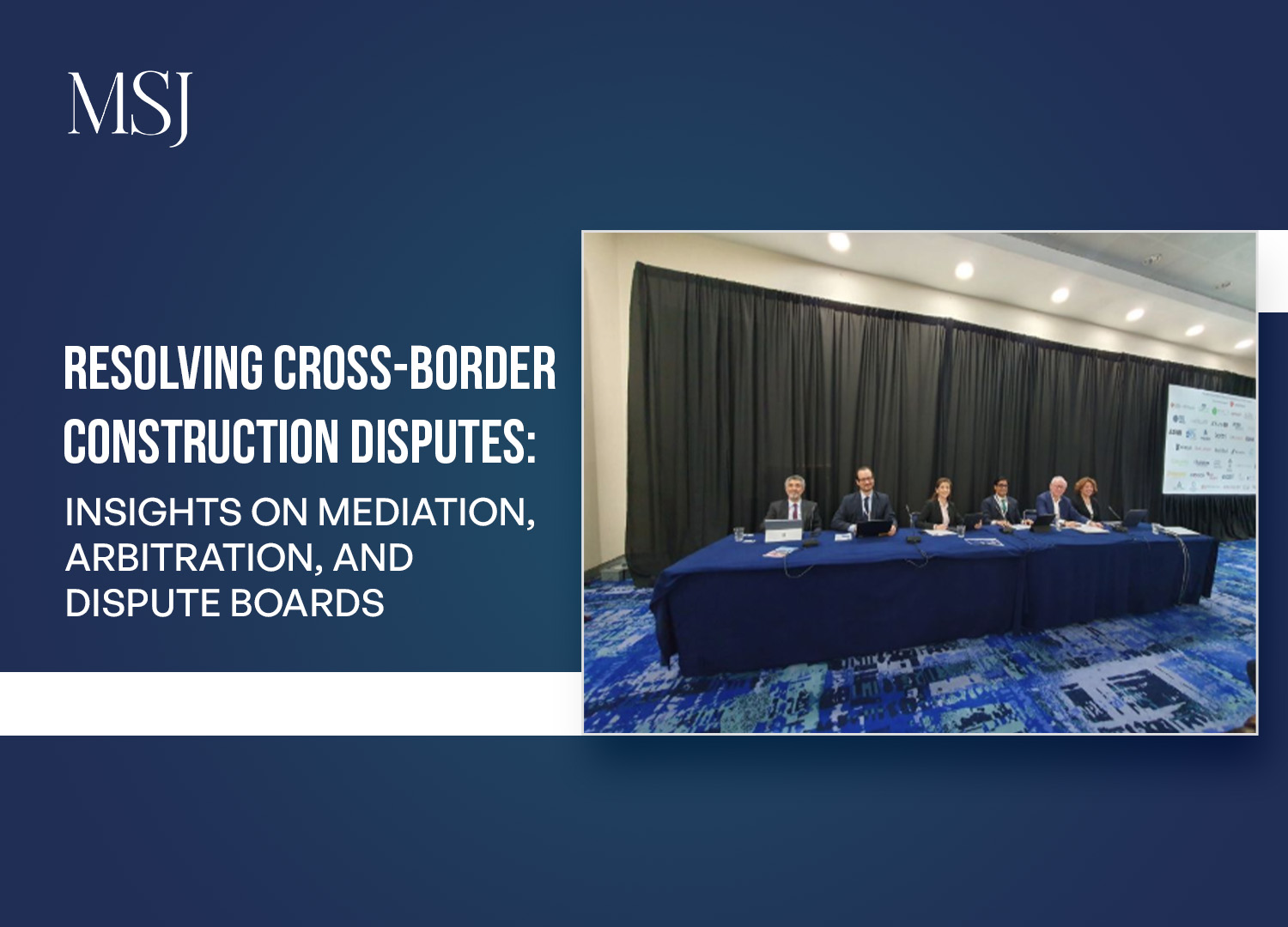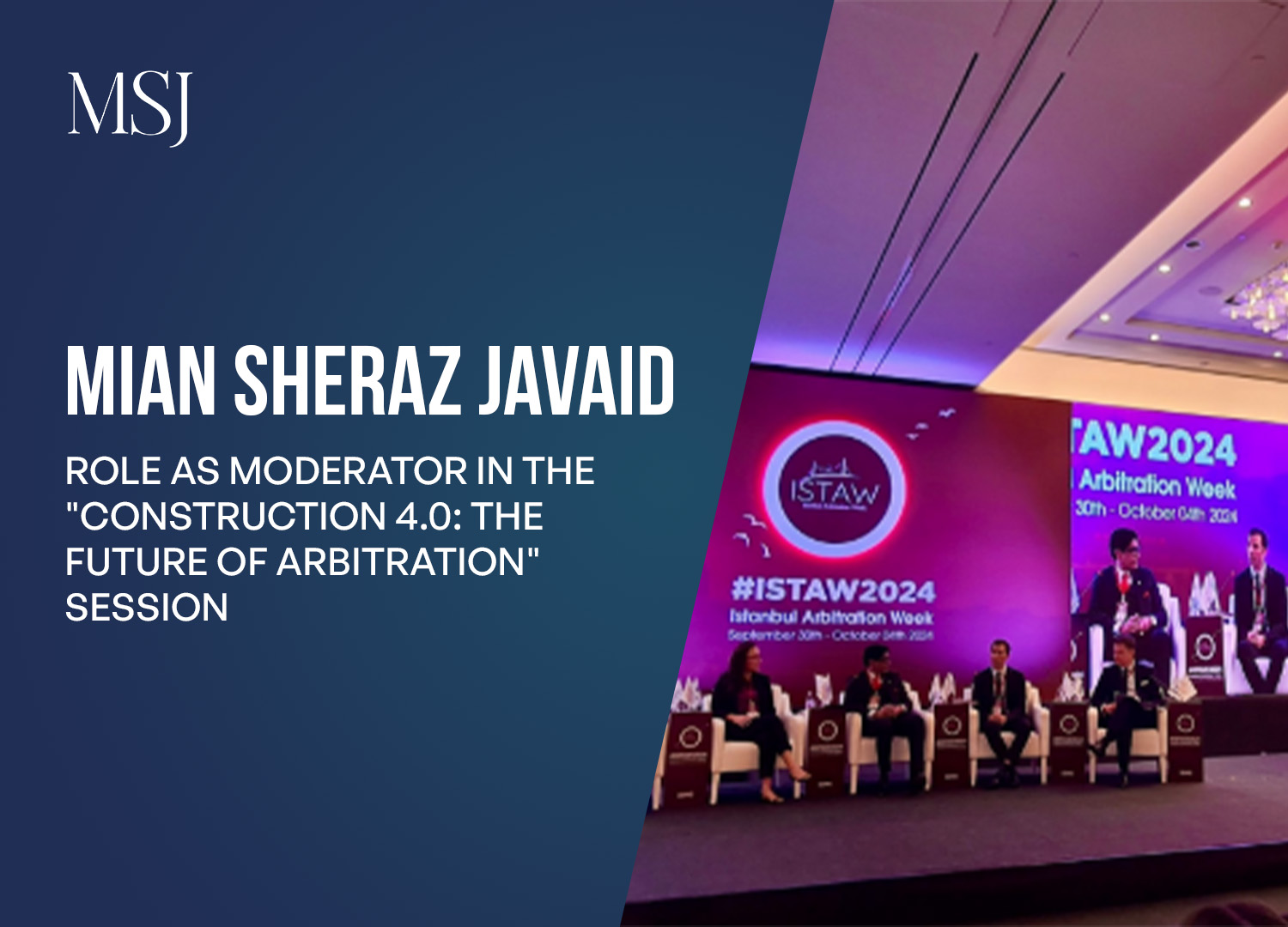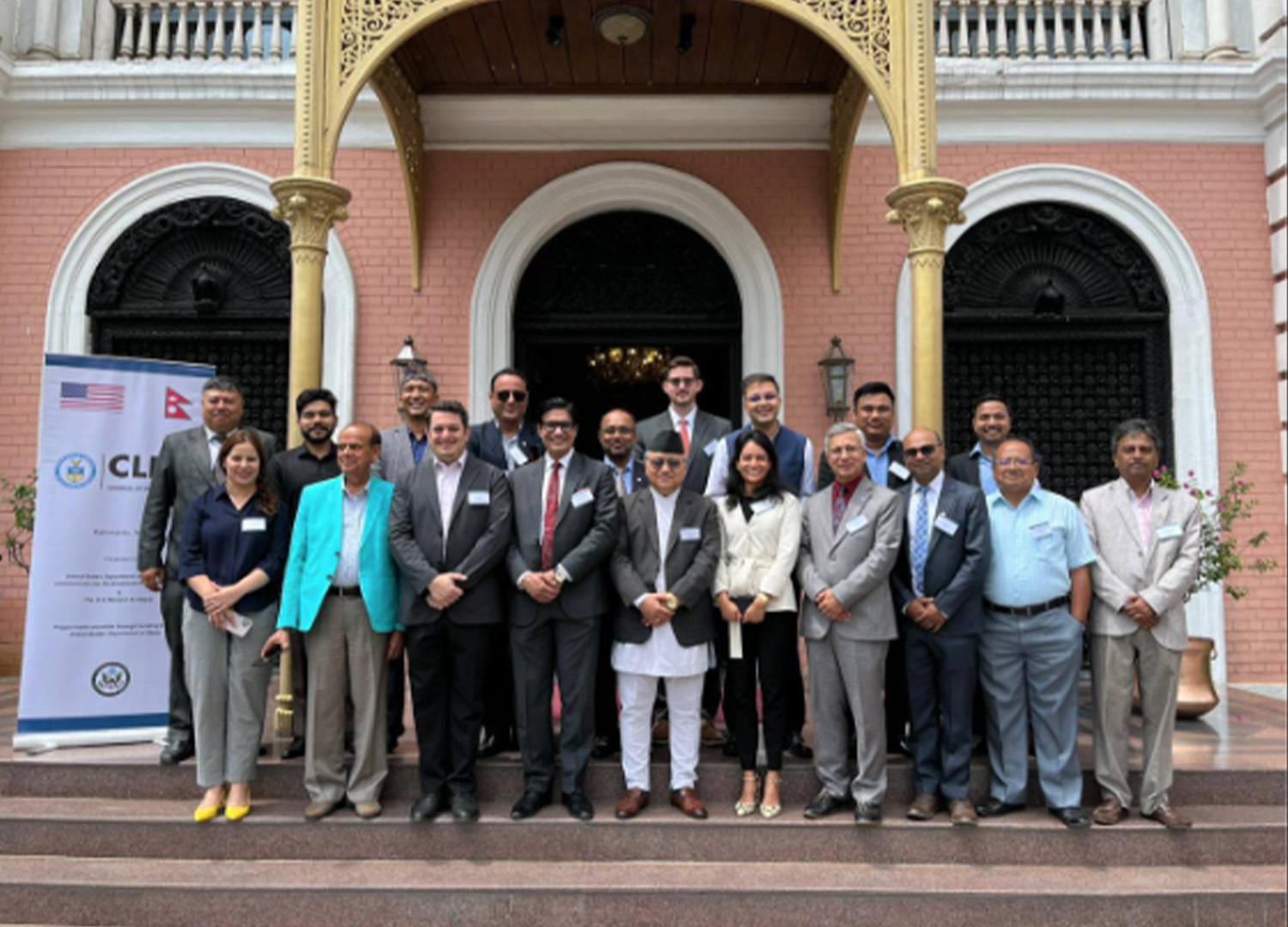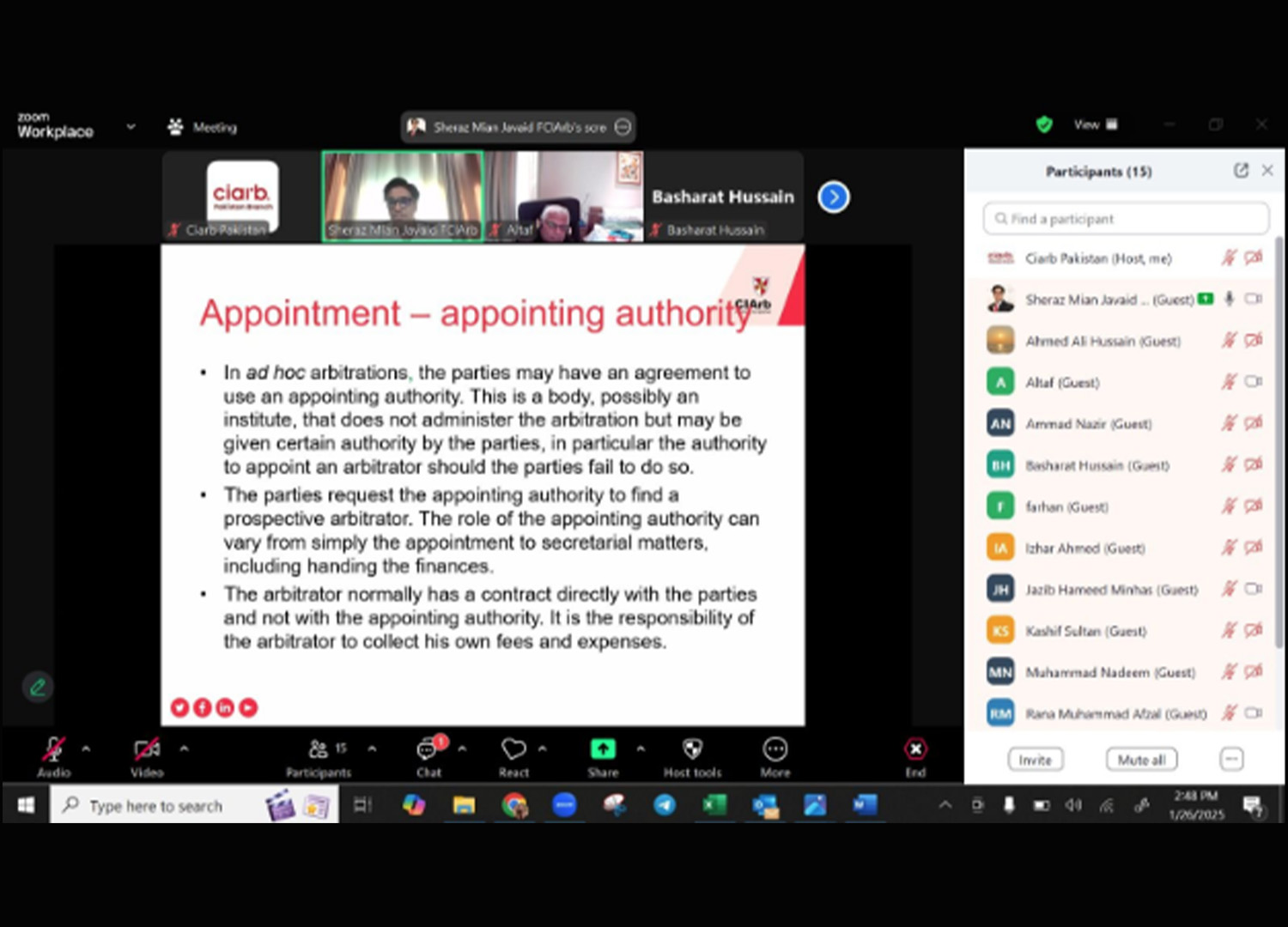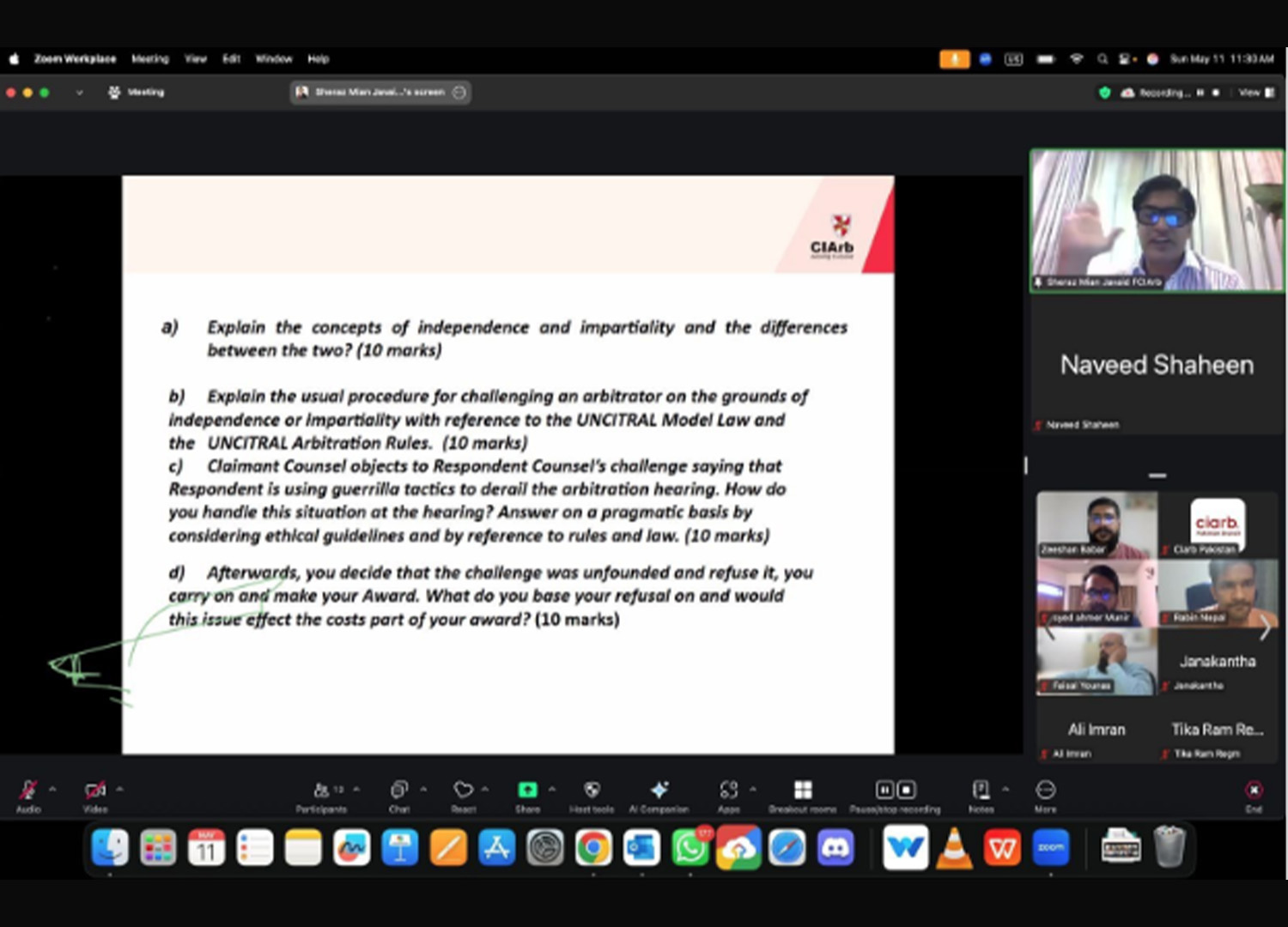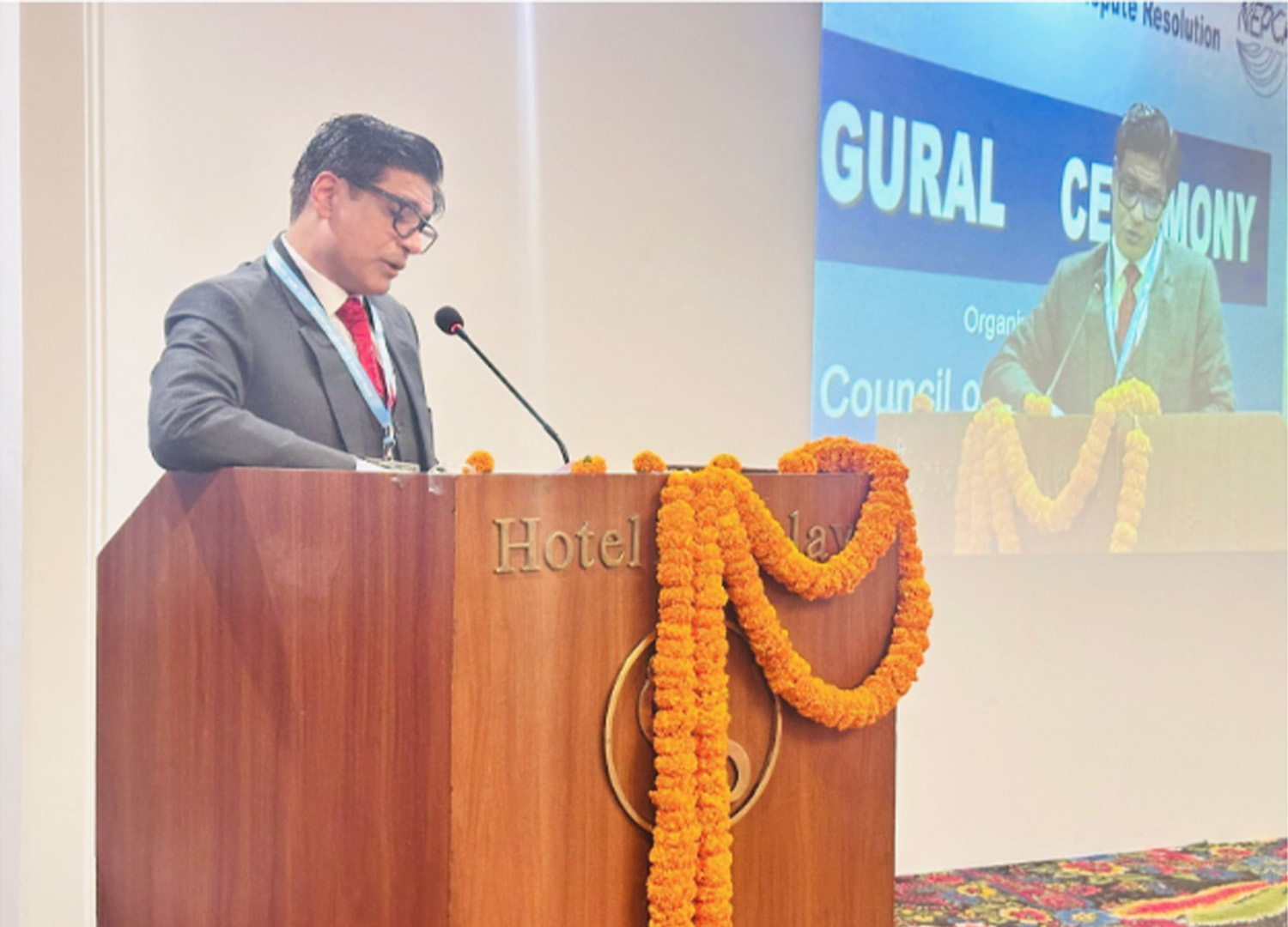Mian Sheraz Javaid Helps Understand the Role of International Arbitration in Construction With NESPAK
As global trade and development projects become more intricate and interconnected, understanding the principles of international arbitration is increasingly vital. Arbitration is now widely recognized as an efficient, flexible, and effective method for resolving disputes that arise in construction projects, especially those that cross international borders. The training session organized by NESPAK focused on this important aspect of construction law and aimed to equip engineers with the tools and knowledge they need to effectively navigate the complexities of disputes in their projects.
The key speaker for the event was Mian Sheraz Javaid, who, with his extensive background in arbitration law, provided valuable insights into the complexities of this specialized area of law. His speech highlighted how arbitration works as a highly effective dispute resolution mechanism, especially in construction projects where disagreements can be costly, time-consuming, and detrimental to both project timelines and relationships between stakeholders.
Sheraz opened his presentation by discussing the significance of arbitration in today’s globalized world. He explained that, in many international construction contracts, the inclusion of arbitration clauses is now standard practice. This is due to arbitration’s ability to offer a neutral forum, independent of any party's national jurisdiction, which helps ensure fair and impartial resolutions. He emphasized the growing importance of arbitration as the construction industry continues to engage in increasingly complex international projects. By resolving disputes through arbitration rather than through national courts, companies can avoid lengthy litigation and protect the interests of all involved parties.
The session covered a wide range of crucial topics, many of which are essential for engineers working on large-scale construction projects, particularly those with international components. These topics included an in-depth look at dispute resolution procedures, the fundamental principles of international arbitration, and the practical application of arbitration rules and procedures. In addition, attendees were introduced to various legal frameworks that govern arbitration, with a focus on the UNCITRAL Model Law and Arbitration Rules.
One of the key takeaways from the session was the comparison of various dispute resolution procedures. Sheraz discussed the differences between litigation, mediation, and arbitration, emphasizing that while litigation through national courts can be time-consuming and costly, arbitration offers a more efficient and flexible alternative. The structured and binding nature of arbitration ensures that disputes are resolved by neutral third parties, and the decisions are enforceable internationally, making it a preferred choice for resolving cross-border construction disputes. By discussing these options, the training gave engineers a deeper understanding of the advantages and disadvantages of each procedure, allowing them to better navigate contractual disputes in their own projects.
In his discussion of the fundamental principles of international arbitration, Sheraz outlined the key stages involved in the arbitration process. These stages include the initiation of the arbitration, the selection of arbitrators, the procedural rules that govern the arbitration, the conduct of hearings, and the issuance of an arbitral award. Sheraz also addressed the crucial role of impartiality and independence in the arbitration process, noting that the credibility of arbitration depends on the neutrality of the arbitrators and the transparency of the proceedings. He highlighted the importance of selecting arbitrators with specialized expertise in the construction industry, as this can ensure that disputes are resolved with a deep understanding of the technical and practical issues involved in large-scale projects.
Another important part of the training was the detailed explanation of arbitration rules and procedures. These rules, which may vary from one jurisdiction or institution to another, are designed to ensure that arbitration proceedings are fair, efficient, and transparent. Sheraz provided an overview of key arbitration institutions, such as the International Chamber of Commerce (ICC), the London Court of International Arbitration (LCIA), and the International Centre for Dispute Resolution (ICDR), explaining the role each of these institutions plays in administering arbitration cases. By understanding the various sets of rules and how they apply to different types of projects, engineers would be better equipped to anticipate the challenges that may arise in arbitration and take proactive steps to avoid costly disputes.
A major focus of the session was on legal frameworks such as the UNCITRAL Model Law and Arbitration Rules. These frameworks are often adopted by countries to provide a unified, consistent approach to arbitration, which is particularly important for international projects. Sheraz emphasized the role of the UNCITRAL Model Law in creating a standard set of guidelines that can be adopted by governments around the world. This law facilitates the enforcement of arbitral awards across borders and provides a common framework for resolving disputes. As more countries adopt this model law, the international arbitration process becomes more predictable, making it easier for engineers to navigate complex construction contracts and understand the legal environment in which they operate.
For engineers, especially those involved in international projects, a clear understanding of the basics of arbitration is crucial. The session helped participants realize that knowledge of arbitration is not just a legal issue—it is a practical necessity. Engineers often play a central role in managing construction contracts, and their ability to navigate disputes or potential issues can help prevent costly delays and complications. By understanding the principles and procedures of arbitration, engineers are better equipped to anticipate potential problems and make informed decisions when disputes arise during the course of a project.
The training session marked a significant step forward for NESPAK and its engineers. Not only did it provide valuable knowledge on the arbitration process, but it also opened up new opportunities for further specialization in the field of international arbitration. Given the increasing complexity of modern construction projects, engineers who are well-versed in arbitration are likely to be more competitive in the global marketplace. Moreover, with the growth of international infrastructure projects, the demand for engineers with expertise in arbitration is expected to increase, making this type of training essential for career development.
In conclusion, the one-day training session on general construction arbitration provided by NESPAK was a valuable learning experience for all those involved. It not only broadened the knowledge of engineers working within the organization but also highlighted the growing importance of arbitration in resolving disputes in the construction industry. As the world becomes more interconnected, understanding the nuances of international arbitration will continue to be a crucial skill for professionals in the construction field. With this training, NESPAK engineers are now better equipped to handle the challenges of modern construction projects and ensure the successful resolution of disputes, both domestically and internationally.



